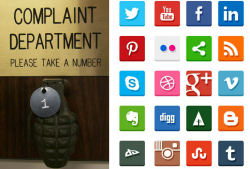
— New research into the impact of car recalls indicates the chatter created on the Internet by recalls not only hurts the company issuing the recall, but also hurts competitors of similar size.
The research was conducted by Abhishek Borah, an assistant professor of marketing at the University of Washington Foster School of Business, and Gerard Tellis, a professor of management at the USC Marshall School of Business.
Wanting to know the effect so-called "social media" has on car makers, Borah analyzed what people were saying on 1,000 automotive social media websites after recalls were announced by automakers. Borah and Tellis tracked multiple recalls of various models of Chrysler, Honda, Nissan and Toyota vehicles during a period of 18 months.
Not surprisingly, the researchers found trash-talking an automaker after a recall had a negative impact on the automaker. However, Borah also discovered the negative chatter could have a bad effect on an automaker not involved in a recall.
Perverse Halo Effect
Calling it the "perverse halo" effect, the researchers determined all the bad-mouthing about a recall has a negative effect on sales and stock prices of a competitor automaker. In fact, negative online comments about a manufacturer erased an average of $7.3 million on a rival's market cap over six days.
The researchers compared sales figures of the Toyota Corolla, Honda Civic and Nissan Sentra and found if one model was recalled, the sales of a non-recalled model from another company also saw sales drop. In other words, if Toyota has problems with a car, the sales of a similar model made by Honda will also be affected.
Borah believes every company should be concerned about a recall announced by a competitor of similar size and in the same nation. However, Borah says apologies should be left at the door.
In what might seem like a bizarre notion to some, the researchers say a company shouldn't make a public apology because it not only hurts the automaker that makes the apology, but it's also detrimental to competitors.
- Have a complaint about a recall or your car? Add your complaint here, about any vehicle.




